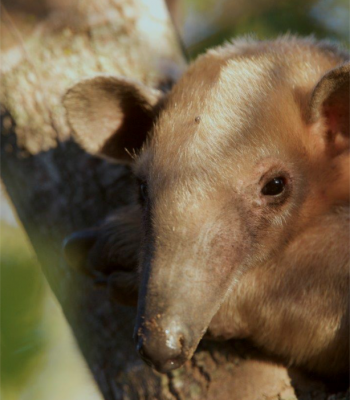
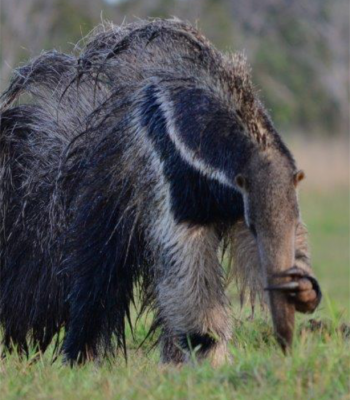
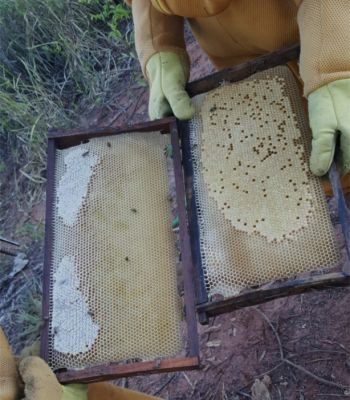
The ICAS – Institute for Wildlife Conservation is a non-profit organization dedicated to biodiversity conservation. We aim to generate science-based knowledge to engage, influence, and seek solutions and strategies that promote harmonious coexistence between humans and wildlife.
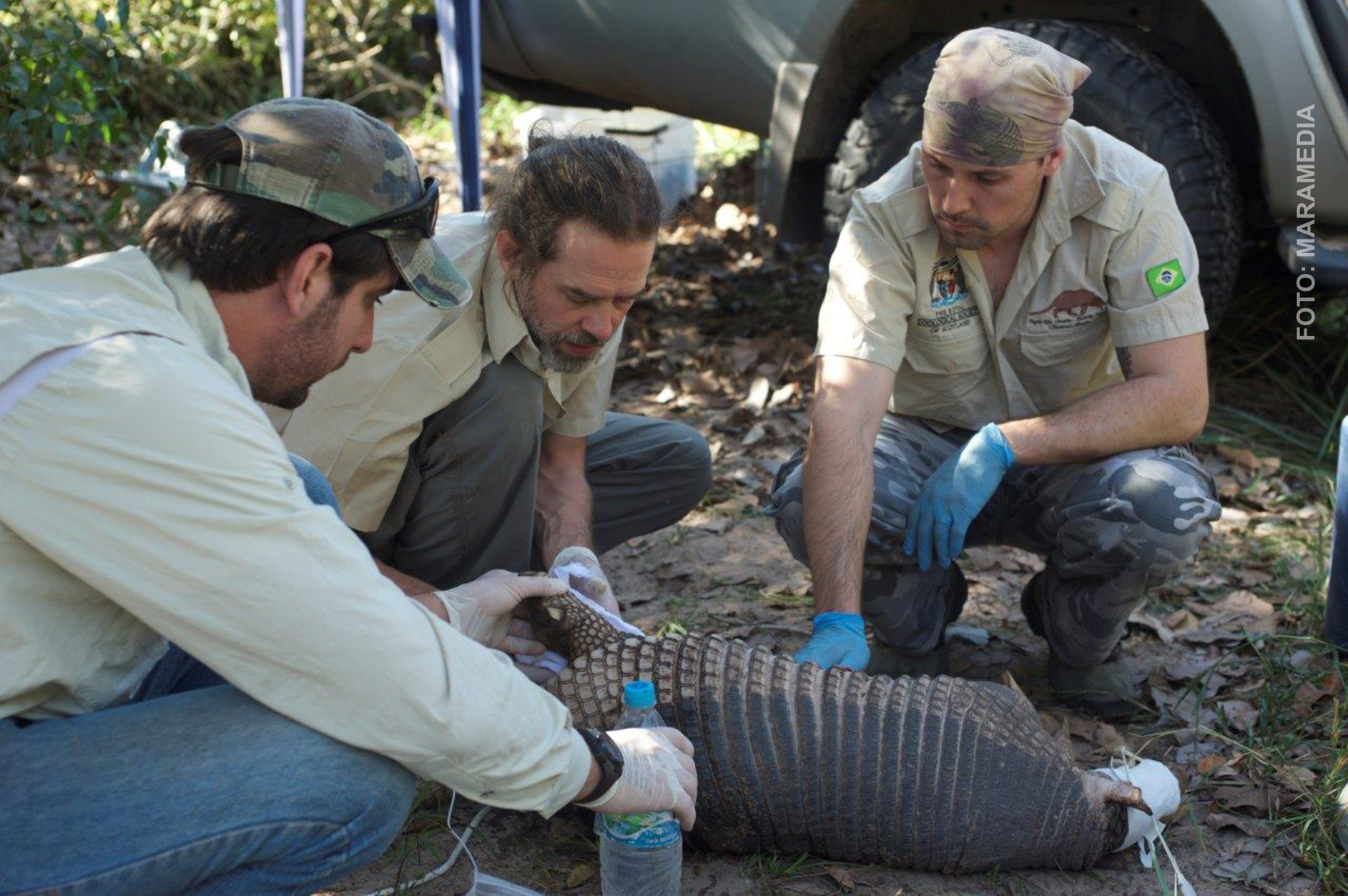
Although they are the largest species of armadillo, these giants are rarely seen. Until recently, very little was known about them, and what was known was uncertain.
Through the efforts of the Giant Armadillo Project and its awareness campaigns in scientific journals and popular media, the world now knows that these giants exist and that many species depend on their burrows.
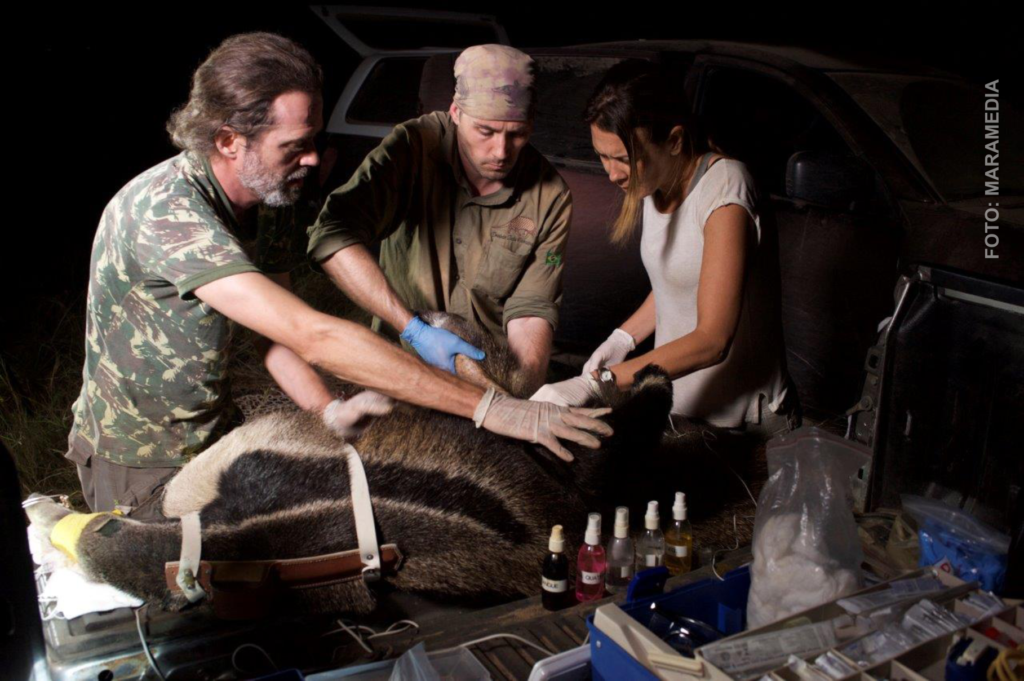
The forests and grasslands of the Brazilian Cerrado harbor one of the largest remaining populations of giant anteaters. However, currently, the Cerrado is threatened due to rapid agricultural development and fragmentation caused by the extensive expansion of road networks.
As a result, this species is among the primary victims of vehicular collisions on highways in the state of Mato Grosso do Sul.
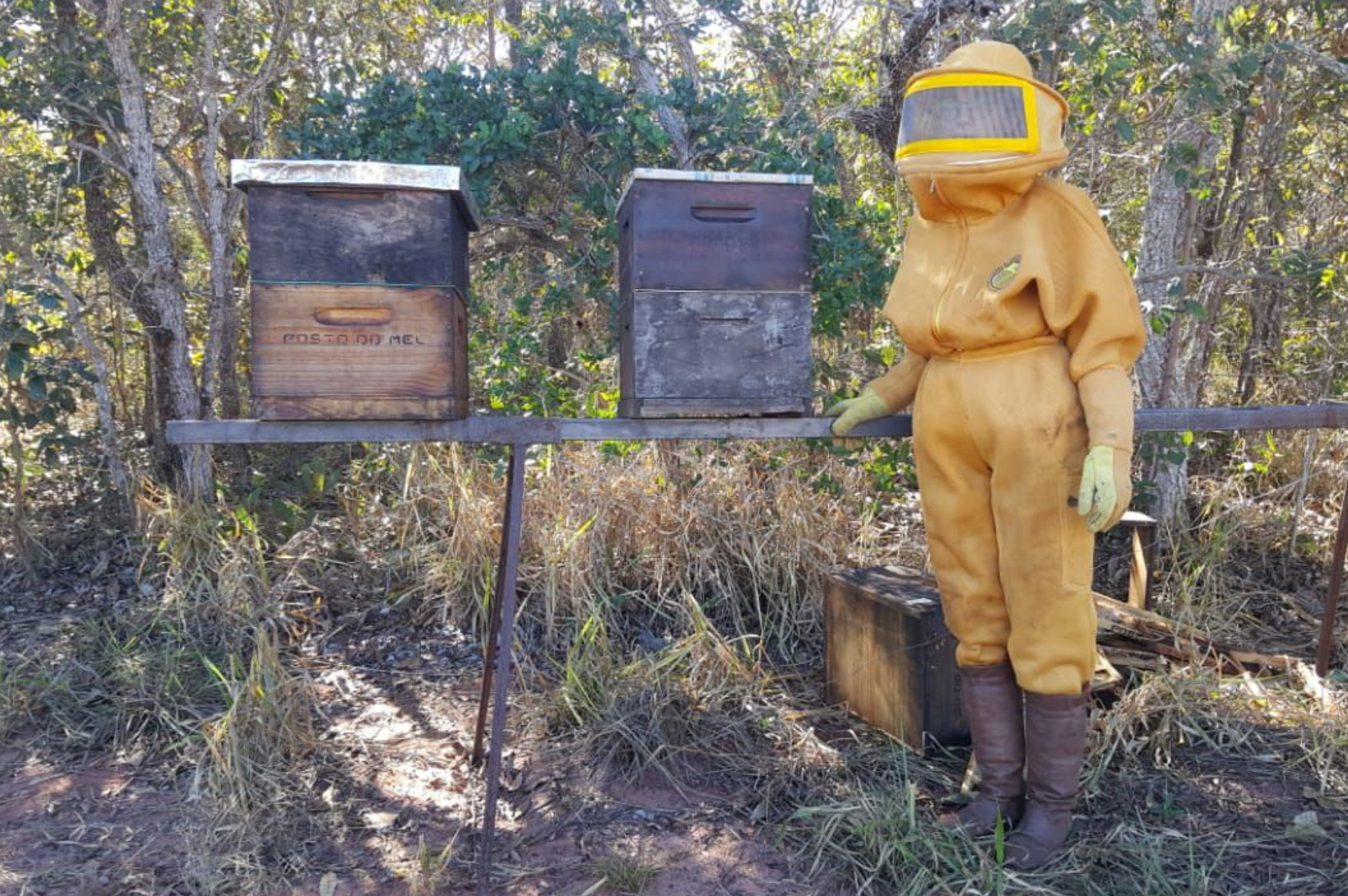
The Canastras and Hives Project was created in 2015 as a complement to research aimed at mapping the occurrence of the giant armadillo in the Cerrado of Mato Grosso do Sul.
The study phase concluded in 2018, and the results are available in the Guide to Coexistence between Beekeepers and Giant Armadillos in the Cerrado of Mato Grosso do Sul.

The involvement of truck drivers will occur through the use of an app installed on their smartphones. Firstly, we will use monitoring data from some of the country’s highways to issue alerts to participants about where and when it is most dangerous to collide with a large wild animal. Secondly, we will ask participants to record sightings of animals such as giant anteaters, capybaras, and tapirs.